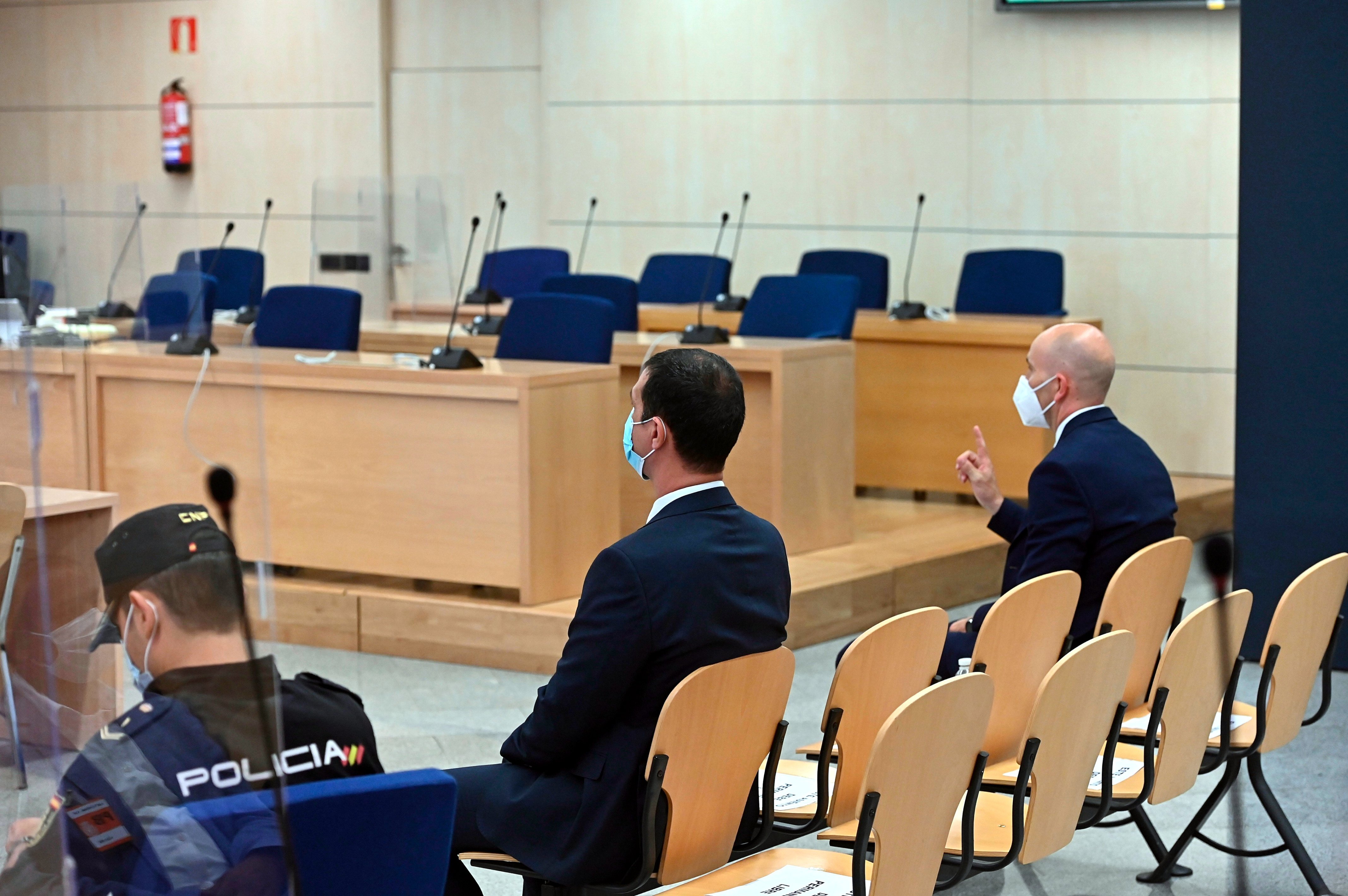Spanish prosecutors have reduced to one year and six months the prison sentences they are demanding for a crime of concealment for the two Catalan policemen who, in their holidays, were accompanying the president of Catalonia, Carles Puigdemont, when he was arrested in Germany in March 2018. In the last session of the trial in the National Audience court, the prosecutor modified his sentence request - having initially called for three years' jail for each man - while also insisting that "the reprehensible character of their conduct" was proven during the trial. As he put it, the two Mossos d'Esquadra officers, Xavier Goicoechea and Carlos de Pedro Lopez, knew that "they were helping to prevent the execution of a European Arrest Warrant". “They did it on purpose,” said the prosecutor.
The fact that Puigdemont decided to make his trip back from Finland to Belgium by road was "to avoid any filter at which the identity of this person could be detected and he could be arrested," the prosecutor said. The journey to Brussels, frustrated by his arrest in Germany, was "more than 2,000 kilometres long" and took about "two or three days," he said.
This is a journey that, compared to going by plane, is "long, difficult and abnormal" and shows the intention "to help evade the arrest warrant" issued by Spanish justice. "They were aware that Puigdemont was wanted and there was an active European Arrest Warrant," said the prosecutor, who noted that, as police officers, they knew how this worked.
The prosecutor stated that the two policemen had no obligation to report or arrest him, but that as public servants they should have "abstained" from travelling with Puigdemont. The prosecutor also considered it "irrelevant" that they intended, as the defendants said, to hand him over to the Belgian prosecution service, because it was Spanish justice that sought him. "All the elements are present" to consider it a crime of concealment, he insisted.
"Neither a fugitive nor exiled"
The defence called for acquittal and stated that the Mossos wanted to hand over the former president to the Belgian prosecutor's office to face the European Arrest Warrant procedure in the country where Puigdemont had established his residence and where he had voluntarily responded to all judicial demands made up till then. "They had nothing to hide," said the lawyer for the two officers accused of concealment, and thus to make the trip, they used a car that they knew the Spanish police were monitoring. The defence argued that they did everything "in broad daylight" and that if they had wanted to do so, they would have looked for ways to circumvent the checkpoints.
The lawyer asserted that if they had wanted to avoid the checks, they could have taken several cars, changed vehicles in Denmark or taken secondary roads instead of motorways. “My clients left Brussels fully aware that they were being monitored,” he assured. In their final statements to the court, the two agents reiterated that there were four vehicles at their disposal in Waterloo, but that they opted for the Renault, which, according to a Spanish National Police officer who testified on Wednesday, was the only vehicle whose details the Spanish passed on to the German police so they could stop it at the border with Denmark.
The defence commented that Puigdemont is "neither a fugitive nor an exile." "He is a citizen who at some point decides to move his residence to Belgium and face European Arrest Warrants from there," he said. The two police officers did not try to evade the European warrant but rather to take him to his place of residence, where he had already faced an earlier one, the lawyer argued. He said that the Spanish authorities "were not interested in the warrant being served in Belgium" and "it was clear that they wanted it to be done in Germany". The defence lawyer affirmed that the Spanish intelligence services "monitored all of Puigdemont's movements" and that denying it is "an insult to the intelligence." “Nothing is coincidence, everything was planned down to the last detail,” he said.
Fast trial
The trial now awaits a verdict after 3 days of short sessions and with virtually no witnesses. Among those who did appear, the head of the central unit of the Spanish National Police's general information commissariat, who stated that the Carles Puigdemont was arrested in Germany because they considered "that it was the most feasible place to practice the arrest ".
During their testimonies, the two accused explained that they had gone to pick up Puigdemont in Stockholm to take him to Belgian prosecutors given the new European Arrest Warrant that had been issued by the Spanish Supreme Court. They insisted that they had no intention of evading justice.
Summing up by the defence lawyer at the trial of Xavier Goicoechea and Carlos de Pedro Lopez

